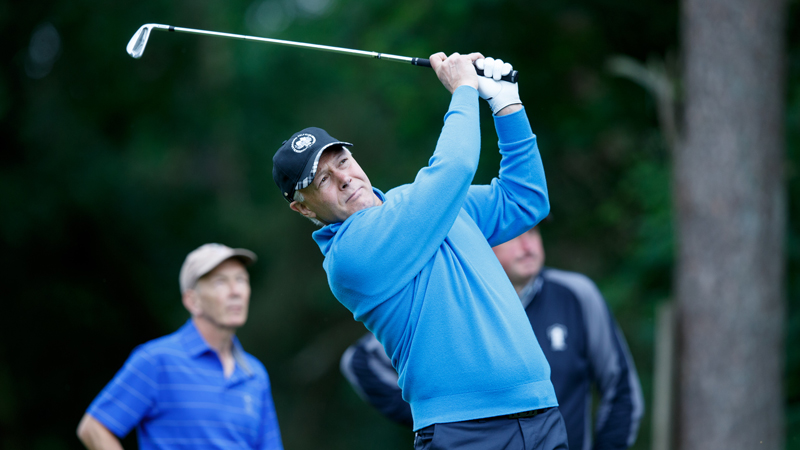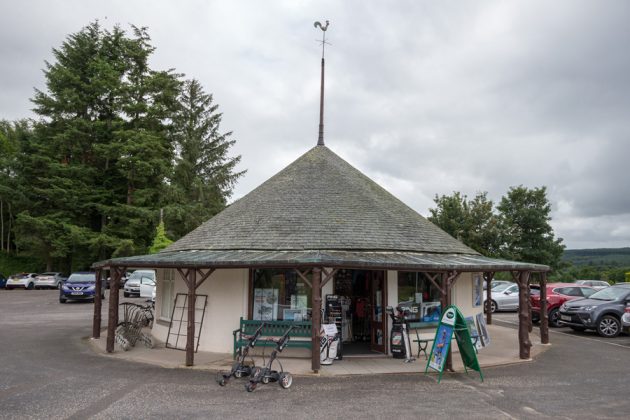How Has The Role Of The PGA Professional Changed?
We spoke to a professional with over 35 years of experience to find out


The answer is, quite a bit. We spoke to Dean Vannet, Director of Golf at Banchory Golf Club and a pro since 1984 to find out more.
How Has The Role Of The PGA Professional Changed?
The modern PGA professional working at a golf club or facility in this country has a raft of responsibilities that far exceed those of the traditional “club pro.”
The role has transformed from that of a shopkeeper doing the odd repair job and giving an occasional lesson to one that’s far more dynamic with PGA pros involved in at least some, if not all areas of golf club management as well as coaching, PR, finance, retail and sharing general golfing expertise in equipment, technique, rules and golf technology.
Dean Vannet has been a professional since 1984 and has witnessed some significant changes through his career. Now Director of Golf at Banchory Golf Club in Aberdeenshire, his remit is somewhat different to when he started at the same club as an assistant, working under Doug Smart and alongside future Open champion Paul Lawrie.
“We would be replacing the whipping on a driver, answering the phone and playing quite a bit of golf ourselves, Paul especially…” he says. “There were lessons, but nothing like as many as Andrew (Dean’s PGA qualified assistant) and I would give today.”
The concept of coaching is something that has really evolved in recent years.
Subscribe to the Golf Monthly newsletter to stay up to date with all the latest tour news, equipment news, reviews, head-to-heads and buyer’s guides from our team of experienced experts.
“People understand the idea of coaching and professionals are far more skilled in that field. The training focuses heavily on that now,” Dean says. “There’s far more information available, whether online, on TV, in magazines giving people details on the importance of coaching and the processes and techniques behind. The average modern pro delivers a far higher and more comprehensive level of instruction than they once did.”
And one of the things facilitating that is advancements in technology.
“The tools at our disposal today are fantastic,” Dean says. “We have an indoor swing studio with a Foresight Sports GCQuad launch monitor and it’s been a game changer. Not only can we give far more in-depth information during lessons and fittings, but we can do it all year round.”
Today’s PGA pros must be well versed in technology, and not only when it comes to instruction or club fitting. In an ever-more digital world, tee bookings have moved online, as have competition draws and score entry, the World Handicap System too. A PGA professional must have a full grasp of all these and be able to explain to members and visitors who need some guidance.
“Right now, that’s a big part of the job,” says Dean. “Switching from everything done by phone and handwriting to, almost, everything done online has been quite a change and it takes some getting used to for many members. Of course, we’re very happy to walk people through new apps and the functions within them but it’s certainly time consuming.”

Within the club, today’s head pro or director of golf has sight of all aspects of club life and acts as an important link between committee, greens, clubhouse and administration. They’re certainly no longer confined to the shop and the practice ground.
“You might be on a WhatsApp group with the staff members, then go for a walk round with the greens committee before checking over budgets,” Dean says. “Then meeting a supplier, giving a lesson and trying to fix a buggy! There’s never a dull moment.”
Of course, for most PGA professionals working at clubs in this country, retail is still a big part of working life, but that too has changed. The arrival of golfing superstores and online retailers has meant the PGA professional has had to look to provide extra to stay in the game.
“The retail landscape has changed massively,” Dean says. “Even in buying groups, we’ll struggle to always match the very lowest price that's available online. But we can add value – If we’re fitting irons, we’ll offer a free fitting and a free lesson post purchase. You have to sell yourself as a coach and that all comes back to the PGA training.”
How has the role of the PGA professional changed?
The role of the PGA professional has moved on significantly in recent years. No longer simply a “Mars Bar” seller and club repair service, they have a crucial linking position at most clubs and golf facilities in this country.
Whether their expertise is as a coach, a manager or a fitter, and whether they excel in marketing, technology or in sales, they will have experience and skills in all with an overall objective of helping members and visitors get the best possible golfing experience.
It must be one of the most diverse and fulfilling jobs there is.

Fergus is Golf Monthly's resident expert on the history of the game and has written extensively on that subject. He has also worked with Golf Monthly to produce a podcast series. Called 18 Majors: The Golf History Show it offers new and in-depth perspectives on some of the most important moments in golf's long history. You can find all the details about it here.
He is a golf obsessive and 1-handicapper. Growing up in the North East of Scotland, golf runs through his veins and his passion for the sport was bolstered during his time at St Andrews university studying history. He went on to earn a post graduate diploma from the London School of Journalism. Fergus has worked for Golf Monthly since 2004 and has written two books on the game; "Great Golf Debates" together with Jezz Ellwood of Golf Monthly and the history section of "The Ultimate Golf Book" together with Neil Tappin , also of Golf Monthly.
Fergus once shanked a ball from just over Granny Clark's Wynd on the 18th of the Old Course that struck the St Andrews Golf Club and rebounded into the Valley of Sin, from where he saved par. Who says there's no golfing god?